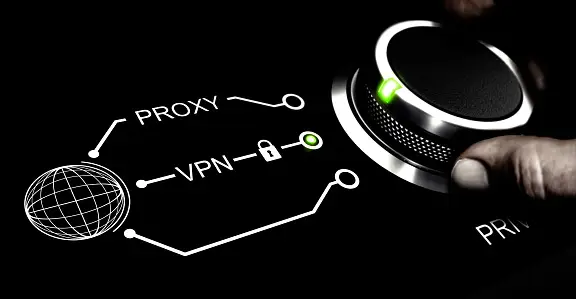Maintaining your privacy online is more important than ever. You might have heard about VPNs and proxies as tools to protect your internet activity. But what exactly are they, and how do they differ? Let’s break it down in simple terms.
What is a Proxy?
A proxy server acts as an intermediary between your computer and the internet. When you use a proxy, your internet requests go through this server before reaching the website you’re visiting. The website sees the request coming from the proxy server instead of your computer.
Key Points about Proxies:
- Hide Your IP Address: Proxies can hide your IP address, making your online actions harder to trace.
- Bypass Geo-restrictions: They help you access content that’s restricted in your region, like certain videos or websites.
- Limited Encryption: Most proxies don’t encrypt your data, meaning your activity can still be tracked by your internet service provider (ISP) or hackers.
- Slower Speeds: Using a proxy can slow down your internet speed because your data has to go through an additional server.
Types of Proxies:
- HTTP Proxies: Best for web browsing; not suitable for other internet activities.
- SOCKS Proxies: More versatile; can handle various types of traffic, including email and file transfers.
- Transparent Proxies: These don’t hide your IP address and are usually used for filtering content.
Pros of Proxies:
- Simple to set up and use
- Effective for bypassing geo-restrictions
- Generally cheaper than VPNs
Cons of Proxies:
- No encryption for your data
- Limited security features
- Can slow down internet speeds
What is a VPN?
A VPN (Virtual Private Network) is a service that creates a secure, encrypted connection between your device and the internet. It routes your internet traffic through a server owned by the VPN provider, masking your IP address and encrypting all your data.
Key Points about VPNs:
- Strong Encryption: VPNs encrypt your data, making it very difficult for anyone to spy on your online activities.
- Complete Anonymity: Your real IP address is hidden, enhancing your privacy significantly.
- Access Blocked Content: Like proxies, VPNs can help you bypass geo-restrictions and censorship.
- Better Security: VPNs protect you from hackers, especially when using public Wi-Fi networks.
- Potential Speed Reduction: While VPNs can slow down your internet speed due to encryption and server distance, many premium VPNs offer high-speed connections.
Types of VPNs:
- Remote Access VPNs: Common for personal use; connect individual devices to a VPN server.
- Site-to-Site VPNs: Used mainly by businesses to connect entire networks in different locations securely.
Pros of VPNs:
- High level of security and privacy
- Encrypts your data
- Protects you on public Wi-Fi
Cons of VPNs:
- Can be more expensive than proxies
- Might reduce internet speed
- Requires software installation and setup
VPN vs Proxy: Which Should You Use?
Choosing between a VPN and a proxy depends on your needs:
- For Privacy and Security: VPNs are the clear winner. Their strong encryption ensures that your data stays private and secure.
- For Simple Tasks: If you only need to bypass geo-restrictions and don’t care much about security, a proxy might be enough.
- For Speed: While both can slow down your internet, VPNs usually offer better performance if you choose a reputable provider.
Comparison Table: VPN vs Proxy
| Feature | VPN | Proxy |
|---|---|---|
| Data Encryption | Yes | No |
| Privacy Level | High | Low |
| Bypass Geo-restrictions | Yes | Yes |
| Internet Speed | Can be slow (depending on provider) | Can be slow |
| Security on Public Wi-Fi | Yes | No |
| Ease of Use | Requires installation and setup | Simple setup |
| Cost | Generally more expensive | Usually cheaper |
| Versatility | Works with all types of internet traffic | Limited to specific types (e.g., web browsing for HTTP proxies) |
Conclusion
Both VPNs and proxies serve the purpose of hiding your IP address and bypassing geo-restrictions, but they do so with different levels of security and performance. For robust online privacy and security, a VPN is the best choice. For quick and less secure tasks, a proxy can be a handy tool. Always consider what level of privacy and security you need before deciding which one to use.
By understanding the differences between VPNs and proxies, you can make informed decisions about how to protect your online privacy. Whether you’re streaming your favorite shows or safeguarding sensitive information, the right tool can make all the difference.

Founder of ToolsLib, Designer, Web and Cybersecurity Expert.
Passionate about software development and crafting elegant, user-friendly designs.
Stay Updated with ToolsLib! 🚀
Join our community to receive the latest cybersecurity tips, software updates, and exclusive insights straight to your inbox!
